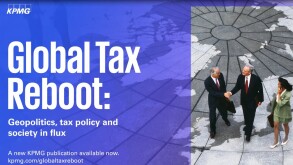Background
The COVID-19 pandemic has given rise to an even greater focus on tax, including as a crucial means for providing initial relief as an immediate response and, longer term, to stimulate growth that will be critical to fund the social and economic recovery efforts as well as to reduce deficits.
In June 2020, the IMF estimated that governmental fiscal support measures, which had been announced, already amounted to nearly $11 trillion globally (IMF: 2020) and, with ‘second waves’ emerging in various jurisdictions, that figure is likely to increase.
Tax systems were on the front line of delivering support in many countries, but there are also questions of whether the COVID-19 crisis provides an opportunity for deep structural reform, including questions of how to meet future revenue needs for increased health and social expenditure and the reduction of government debt arising from the pandemic situation. With these broader questions in mind, we decided to launch a series of roundtables looking at tax policy post-COVID-19 and bringing together a diverse range of voices and stakeholders to inform the discussion. Write-ups of each roundtable can be found at home.kpmg/responsibletax.
Purpose
The intention of this roundtable series was to see if an emerging consensus could be achieved as to how tax policy could effectively support a post-COVID-19 recovery for the benefit of all. This summary sets out the key themes and focus areas that have emerged over the course of eleven virtual roundtables held from June 2020 to September 2020. KPMG’s role was as a convener of the conversations, and the views expressed in the roundtables are not necessarily the opinion of KPMG International or any KPMG firm, nor were the views expressed by individual participants necessarily those of their respective organisations.
The first three roundtables covered the various stages of the pandemic:


The remaining roundtables looked more deeply at the new reality phase and focused on three key workstreams that were identified as important in the earlier roundtables:

The roundtables had a global focus and drew from the knowledge and insights of a wide range of stakeholders, including various multilateral institutions (IMF, OECD, IFC, World Bank, UN), taxpayers (individuals and corporates, particularly multinational business entities), civil society, academics and professionals. The roundtables were held under Chatham House Rules and attendees spoke in a personal capacity.
Download the PDF to read the full summary

































